Including more than three crops in a cash crop system may not only help increase yield, but significantly enhance the long-term sustainability of a farm. Dr Johann Strauss of the Western Cape Department of Agriculture spoke to Glenneis Kriel about the benefits of crop diversity.

Around the world, a growing number of farmers are switching to crop rotation due to its capacity to improve farm earnings through higher yield and reduced fertiliser, pesticide and herbicide usage, while boosting sustainability.
Long-term rotation trials by the Western Cape Department of Agriculture at the Langgewens Research Farm in the Swartland and Tygerhoek in the Southern Cape confirm this.
In crop rotation evaluations that started at Langgewens in 1996, wheat monoculture has always been the poorest performer of all the combinations under trial. But in rotations that included at least one type of legume, such as lupines or medics, the average wheat yield was 30% higher than when wheat was produced in a monoculture. The yields of rotations containing no legumes were on average 12% higher.
BEST ROTATION
A medic-canola-medic- wheat rotation consistently performed the best, producing an average yield 37% better than a system where wheat was produced on its own (see table).
Water- and nitrogen-use efficiency also improved. Wateruse efficiency of rotations that included canola was 11% higher, and rotations that included one or more years of legume crops or pastures were between 26% and 31,6% higher than when wheat was planted on its own.
Nitrogen-use efficiency was on average 89% better in rotations that included legumes than when wheat was produced alone, and 35% better when the rotation included only one year of legumes. The use of canola in the rotation, without any legumes, increased nitrogen-use efficiency by 9%.
During the past two seasons, of which 2017 was dry and 2018 had below-average rainfall, the researchers set out to establish how low the nitrogen level could be reduced in a medic and wheat rotation.
This story is from the August 9, 2019 edition of Farmer's Weekly.
Start your 7-day Magzter GOLD free trial to access thousands of curated premium stories, and 8,500+ magazines and newspapers.
Already a subscriber ? Sign In
This story is from the August 9, 2019 edition of Farmer's Weekly.
Start your 7-day Magzter GOLD free trial to access thousands of curated premium stories, and 8,500+ magazines and newspapers.
Already a subscriber? Sign In
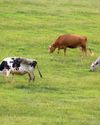
Africa goes from net carbon sink to source
New research shows Africa's impact on greenhouse gases and the need to focus on climate-smart agriculture
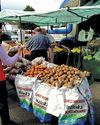
Ireland potato farmers unable to complete planting
Irish potato farmers have reported a delay in harvest and said that the UK might have to prepare for shortages of the produce. The shortfall is due to extreme wet weather during their planting season.
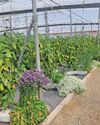
Zero-residue fresh produce a reality
Retail giants are calling for caution when using biologicals and chemical pesticides,

Big boost for mohair producers in Eastern Cape
A collaboration between the Eastern Cape Development Corporation (ECDC) and the Mohair Empowerment Trust (MET) has resulted in a R1,4 million injection into four emerging Angora goat farming operations in the Eastern Cape.

KZN Youth Show at Roval Agricultural Exhibition
The KZN Youth Show will run from Friday, 24 May to Sunday, 26 May at the Royal Showgrounds in Pietermaritzburg.
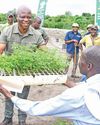
Hemp permits and irrigation system handed over
In an effort to fast-track the entry of rural farmers into the cannabis and hemp industries, KwaZuluNatal Minister for Agriculture and Rural Development, Super Zuma, visited the Shukasibheme Project in Mbazwana, a co-operative in Mseleni, uMhlabuyalingana in the Umkhanyakude District, to hand over cannabis and hemp permits as well as a borehole and irrigation system.

Meet some of the heroes behind avitourism destinations
Exploring what the Garden Route offers birdwatchers, Brian Berkman discovers some special people who run hospitable places to meet and see a variety of species.
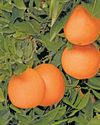
What the Citrus Academy offers aspiring producers
Cobus du Plessis takes a look at the Citrus Growers' Association of Southern Africa's Citrus Academy and how it is helping to develop aspiring farmers in the sector.

Natural-born killers of the insect world
The Myrmeleontidae family of lacewings from the Neuroptera order of insects consists of about 2 000 species of which 125 are found in South Africa.
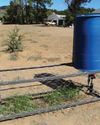
Seeder kick-starts vegetation in challenging environments
Dr George Craven of Noorspoort, Steytlerville, in the south-eastern Karoo, is successfully using a home-built 'bedstead seeder' to re-establish veld plants in an arid area, writes Roelof Bezuidenhout.